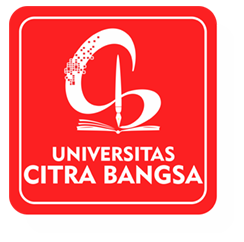pengaruh media film animasi fiksi pada mata pelajaran agama khatolik untuk meningkatkan kemampuan menyimak dan berbicara siswa kelas 3 sd k wemasa
Keywords:
Fictional animated film media, Improve,Listening ability, Speaking abilityAbstract
This study aims to determine the effect of animated fictional film media on Catholic Religion subjects to improve listening and speaking skills of the third gtade students of SDK Wemasa. This research was conducted on January 18 to 23 at SDK Wemasa. the research method used in this study was the experimental question. The population in this study were students of class III A students abd III B SDK Wemasa students with a total of 20 students each for a total of 40 students. The sampling technique used structured observation. The result of the postest class research with a pretest average value of 48.80.while the experimental class with an average posttest score of 84.10 and a statistically significant value of 0.692>0.05. thus it was an increase in the use of fictional animated film media in Chatolic Religion subjects to improve the listening and speaking skills of grade III SDK Wemasa students.
Downloads
Downloads
Published
How to Cite
Issue
Section
License
Every works in JUMPIKA is licensed under a Creative Commons Attribution-ShareAlike 4.0 International License.
Authors who publish with this journal agree to the following terms:
- Authors retain copyright and grant the journal right of first publication with the work simultaneously licensed under a Creative Commons Attribution License that allows others to share the work with an acknowledgment of the work's authorship and initial publication in this journal.
- Authors are able to enter into separate, additional contractual arrangements for the non-exclusive distribution of the journal's published version of the work (e.g., post it to an institutional repository or publish it in a book), with an acknowledgment of its initial publication in this journal.
- Authors are permitted and encouraged to post their work online (e.g., in institutional repositories or on their website) prior to and during the submission process, as it can lead to productive exchanges, as well as earlier and greater citation of published work (See The Effect of Open Access).




